Ruth Harris
Musician, ecumenical mission leader, mentor of students worldwide
Ruth Myrl Harris, a resident of Pilgrim Place, died on April 7, 2013. She was 92.
The oldest child of Ross and Esther Cole, Ms. Harris was born on June 9, 1920 in a small rural town in northeast Nebraska. She was especially inspired by the strength of her grandmother Clara and her mother Esther, who raised 5 children after their father left at the time of the l929 crash. Ms. Harris graduated from Morningside College in Sioux City, Iowa and worked as a teacher and community music leader.
Two influences shaped Ms. Harris’ profound commitment to justice. The first was her experience as missionary teacher in China, under the auspices of the Woman’s Division of the Methodist Board of Missions. Teaching choral music in a girls’ school in Shanghai, she was moved by the idealism of her students. For 2 years before and 2 years after the Chinese Revolution of October 1, 1949, she saw the people’s oppressive poverty and the need for radical change.
Doris Rhoades counted Ms. Harris as one of her oldest friends. They met in missionary training and went to China, arriving in February of 1947. At language school. Ms. Harris was a quick study in Mandarin and tutored Ms. Rhoades, who attributed her friend’s skill in language to her background in music.
“China, along with lots of other countries in Asia, was badly damaged and hurt by the war. The people were so needy on all fronts: education, food, housing and jobs,” Ms. Rhoades said. “In those days, we talked about helping to rebuild the country.”
Ms. Rhoades was a social worker in a village 2 hours east of Shanghai. From time to time, Ms. Harris would take some of her students by train to the countryside where Ms. Rhoades worked, and Ms. Rhoades occasionally visited Ms. Harris in Shanghai. “One of the most thrilling things for me was to see the big choirs Ruth had in China,” Ms. Rhoades said. “She did a beautiful job teaching music, and she was very loved by the students.”
The 2 friends reluctantly left China in 1951, when Americans were asked to leave as the Korean War had begun. Ms. Rhoades later worked in Hong Kong, where she would stay for 26 years, while Ms. Harris remained to work in the States. They stayed in touch and were reunited at Pilgrim Place.
The other major influence in Ms. Harris’ sense of justice was her participation in the Civil Rights Movement. She took part in the march from Selma and helped with logistical organizing behind the scenes, as she brought students to Alabama. Later, she supported students in the sit-ins as an advocate in the Methodist Church for their anti-racist cause. Dr. Martin Luther King Jr. was always one of her heroes, and Ms. Harris was thrilled to be present with a student delegation for the March on Washington in August 1963.
After returning from China, she studied at the Westminster Choir College in Princeton, New Jersey, singing with the New York Philharmonic and experiencing the extraordinary gifts of Robert Shaw in a summer event at Northwestern. In l967, she got a master’s degree in International Education from Columbia University.
Meanwhile, Ms. Harris led seminars on international affairs at the United Nations during 1952-54. She worked in 1954-59 as the national Field Program Director for the Student Volunteer Movement and National Student Christian Federation, helping organize 2 major ecumenical and international conferences in Athens, Ohio in 1955 and 1959.
Annie Wu King first met Ms. Harris as a teenager in Shanghai where they both sang The Messiah at Christmastime in the citywide chorus. Ms. King fled from China to Hong Kong in 1956, living for 2 years as a refugee before she began attending the University of Pennsylvania.
Ms. Harris invited her to a weeklong symposium in New York City, sponsored by the National Student Christian Federation; it was perfect timing. Having experienced the abject poverty of the Chinese people and refugees in Hong Kong, Ms. King was feeling depressed living in a country where the economy was booming and people seemed unconcerned about suffering elsewhere in the world. Ms. King was exposed to speakers who were passionate about effecting positive change across the globe.
Ms. Harris involved Ms. King in the board of the National Student Christian Federation, a post for which she traveled from Philadelphia to New York once a year. “There, I met people who were really concerned about what was going on in the world, not just what football game was going on,” Ms. King said. “I was very much impressed and very much changed. I owe this transformation in my life to Ruth.”
Ms. King was very happy to meet up with her mentor once again at Pilgrim Place, as was another friend, Paul Minus. Mr. Minus met Ms. Harris when he was an undergraduate at Yale and serving on the board of the Student Volunteer Movement, where she was an organizer. “I remember she had been on the staff only a few weeks when, at our spring board meeting, she sang a beautiful solo that I was very moved by. It became kind of a bonding event,” he said.
Later, Mr. Minus worked with Ms. Harris in planning and implementing the 2 world conferences in Ohio.
“What was unique was that for the first time, they brought together an equal number of US students and students from overseas who were studying in the United States,” he recalled. “The former pattern had been that westerners—the missionaries sent to Asia, Africa and Latin America from Europe and North America—dominated everything. It was clear that, with the Christian churches growing in all those former mission areas, it was a new day of partnerships where we all had responsibility for the church’s mission in the world.”
“Ruth was a wonderful person to implement that new vision of global Christianity,” he continued. “She had an amazing knack for making contact with the hearts and minds of people. She had a great combination of vision and practicality, and so that combination helped her to communicate her global ideals and visions to help them find legs.”
Next, Ms. Harris became National Secretary for Student Work of the Woman’s Division, but was then called in 1965 by the Board of Missions to become the first executive secretary for University World, a fully international portfolio. She worked with students and faculty through churches, universities, student movements, and the World Student Christian Federation during a period of decolonization and massive challenge. She also shared leadership with Presbyterians and others in the Frontier Internship in Mission Program, an ecumenical program involving young people in critical global issues.
Other assignments followed within the World Division to coordinate the Quadrennial Emphasis 1969-72 and then 5 years as Assistant General Secretary for Development and Planning. For the remainder of her career, 1977-90, she traveled the world as Executive Secretary for Global Justice. This involved working with poor people’s movements, urban/rural missions, human rights, anti-war struggles and women’s rights as well as furthering leadership of students and young adults.
Highlights included chairing Agricultural Missions and the NCCCUSA Committee on Human Rights; helping initiate and direct the Mission Intern Program; serving for 10 years as chair of the Church Coalition for Human Rights in the Philippines; helping found and advise the Women’s Commission of the World Student Christian Federation; and serving on the WSCF Executive Committee and the WSCF Trustees in the USA.
A major achievement was collaborating with 16 other women on the book Journeys That Opened Up the World: Women, Student Christian Movements, and Social Justice, 1955-75. The book was launched at an event in New York City in November 2003 honoring Ms. Harris for her passion for justice.
Eleanor Scott Meyers, a Pilgrim Place resident and one of the women featured in Journeys That Opened Up the World, emphasized that the book would not have been written had Ms. Harris not been there to tap into the extensive network of women activists that she had cultivated over the years. “She had a lot of courage and determination for justice,” Ms. Meyers said. “That’s just who she was.”
Ms. Harris came to Pilgrim Place in Claremont, California in December 2000. She sang in the Chorale, helped start the Peace Vigil Committee, assisted at the Pilgrim Festival and enjoyed the stimulating life of Claremont. Due to declining health, she had to spend the last 2-and-a-quarter years in the Health Services Center, where she brightened lives around her with her radiant smile and quiet friendliness. In New York, Ms. Harris was a member of Judson Memorial Church and in Claremont she attended the United Methodist Church, but she was always broadly ecumenical.
Former Mission Intern Kevin Uchida wrote: “Few people have the courage to burn so brightly for so long, and my inclination is to laugh rather than cry for Ruth at the end of this tremendous journey.” Thousands of young people, now leaders in the United States and various parts of the world, have caught fire from Ms. Harris.
Ms. Harris is survived by Pat Patterson, her co-worker and partner of 42 years; by Doris Caldwell Rhoades, her China colleague and friend of 67 years; by her sister and brother-in-law, Elizabeth and Derald May of Phoenix; and by her brother and sister-in-law, Guy and Vikki Harris of Des Moines. She is beloved of her nephews and nieces, Catherine, Roxanna, Michael and Philip, and Mark, Rebecca, James, and Kathe and their partners, as well as 18 greats and grands.
A memorial service for Ms. Harris will be held at Pilgrim Place’s Decker Hall on Sunday, April 28 at 3:30 p.m., followed by a reception at Napier Center. Memorial gifts may be sent to the Ruth Harris Fund for Women’s Leadership, c/o Jorge Domingues, WSCF, 475 Riverside Dr., New York, NY 10115, or to Pilgrim Place Health Services Center, 625 Mayflower Rd., Claremont, CA 91711.


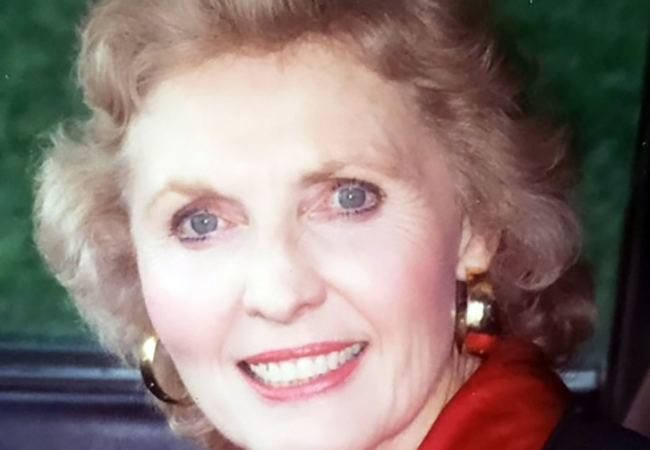
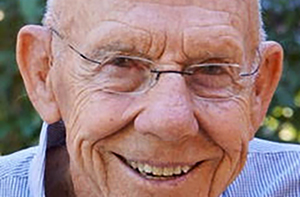
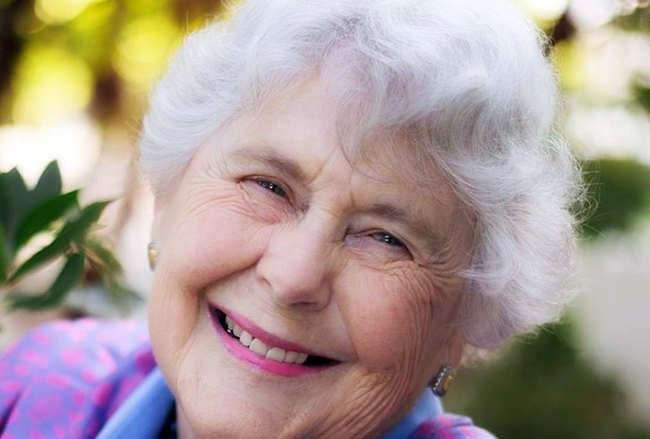
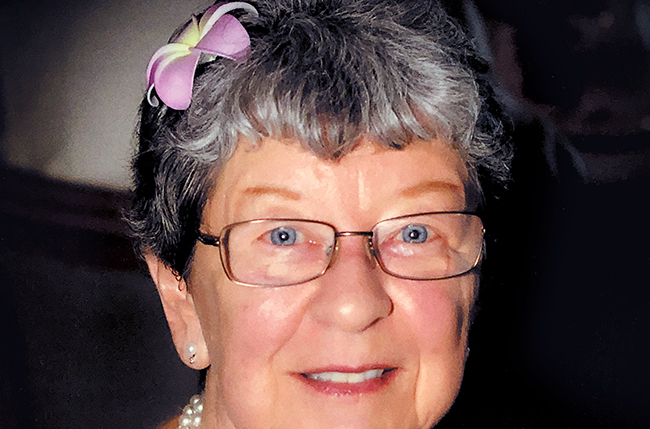
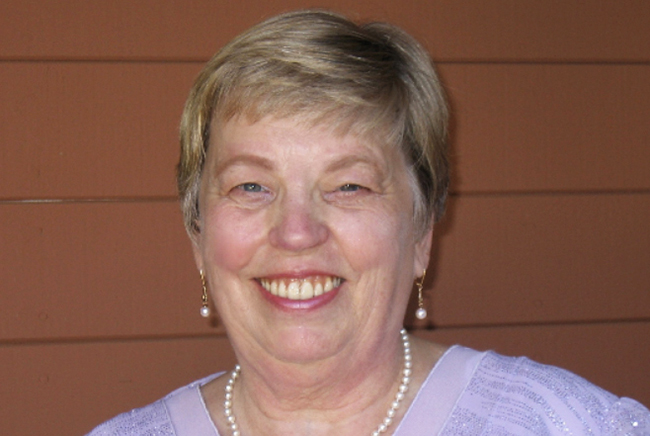
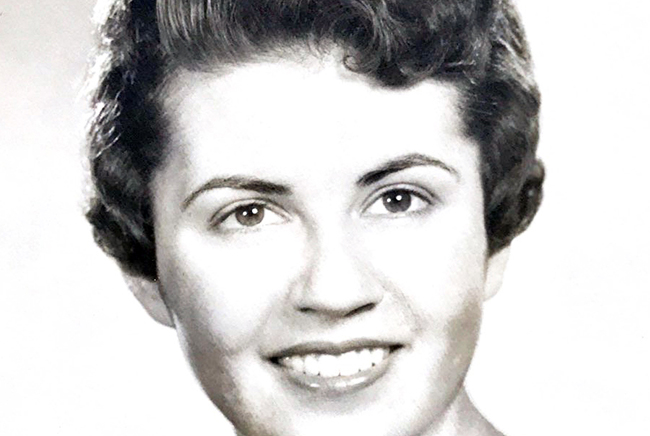

0 Comments